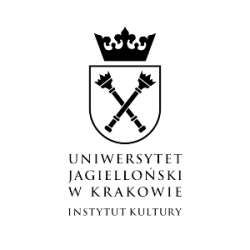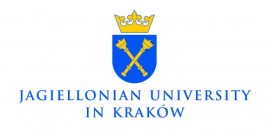Dear Colleagues
Dear Partners
The vision of future Europe represented by the European
Union is conceived  as a shared project based on the idea of a more or less common past. Hereby past and future are in a dialectic tension. The more the common future is doubted or even at risk, the more the awareness of a common past and common historical sources and ideas is politically demanded. Therefore the question of cultural heritage and its appropriate management have become one of the central issues in European cultural policy.
as a shared project based on the idea of a more or less common past. Hereby past and future are in a dialectic tension. The more the common future is doubted or even at risk, the more the awareness of a common past and common historical sources and ideas is politically demanded. Therefore the question of cultural heritage and its appropriate management have become one of the central issues in European cultural policy.
The colloquium of Krakow is facing this issue in a specific manner. On the one hand, it recognizes the fact that memory and heritage management incorporates compound cultural, political and economic dimensions. This leads to the necessity of consistent theoretical reflections on the conditions of history policy itself. On the other hand, heritage management is thought to generate practical results in dealing with tangible and nontangible heritage.
To reflect both, essential political conditions and practical concepts, the colloquium focusses on the idea of Cooperative Cultural Heritage Management.
This focus is based on the assumptions that:
-
Essential political processes in developed democratic societies have to be organized in political agendas merging public interests, economic priorities and participation of concerned citizens. It is no doubt that cultural heritage management is facing this problem in an extraordinary way because cultural heritage is always unique and cannot be easily substituted in cases of failed processes (which take place when the heritage is not conserved properly or if it is used in an inadequate manner);
-
The cooperation between public domain (state, municipalities), private bodies (enterprises or other private entities) and civic society can be considered as a reasonable and strong basis for the development of alternative heritage projects, in which the three sides mutually assist and simultaneously control each other. This is especially the case when the public domain is not capable to finance projects by itself or if private interests menace the historical substance (e.g. by ‘creative’ de/reconstruction or inadequate use);
-
Cooperative approaches have offered valuable solutions in the past (saving banks, farm cooperatives, trading and consumer cooperative societies), and in some countries like Germany they are currently experiencing a renaissance.
The aim of the colloquium is to establish the state of art of research on Cooperative Cultural Heritage Management in the framework of the European heritage policy in order to develop a network of research and academic co-operation on this topic.
TOPICS OF INTEREST
The colloquium will approach the issue focusing on four main topics:
1.Concepts of cultural heritage policy of and in the EU and its challenges to cultural heritage management.
2.The role of cooperative management for sustaining cultural heritage: opportunities challenges.
3.Traditions and concepts of cooperative movements in Europe and their potentials for sustainable cultural heritage management.
4.Good examples and best practices of cooperative cultural heritage management.
SUBMISSION GUIDELINES
All those wishing to present a paper at the International Colloquium must submit an abstract by 30 September 2015.
Extended abstracts of maximum 700 words are welcome indicating the topic of the contribution, main argumentation and references, together with brief biographical notes of the author up to 150 words. Fill the Application on the web page https://sharingmemorywzks.wordpress.com/
If you want to only participate in Colloquium, please registry yourself click here: Registration & Fee. Registration is due on October 30.
All those wishing to publish a paper must submit it by Friday, 30 October 2015.
The proceedings of the colloquium will be published in a reviewed scientific publication or special issue of Culture Management Journal.
